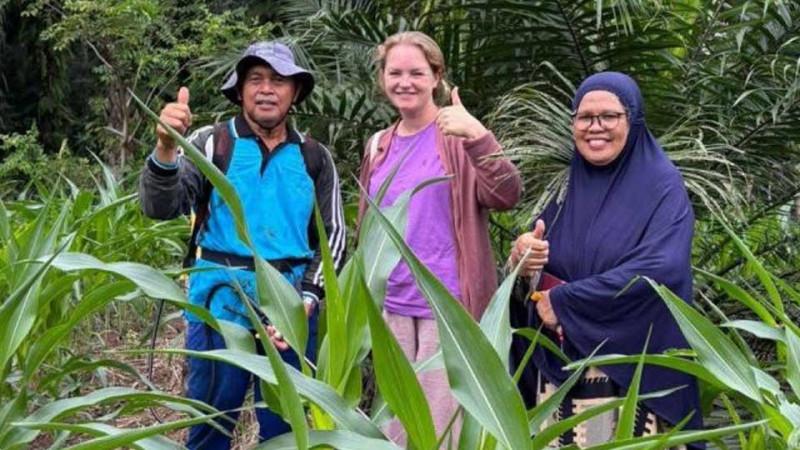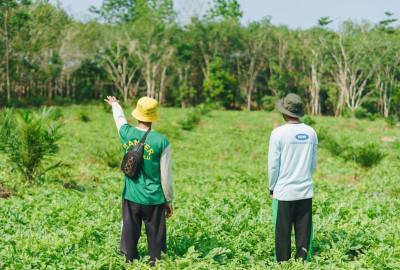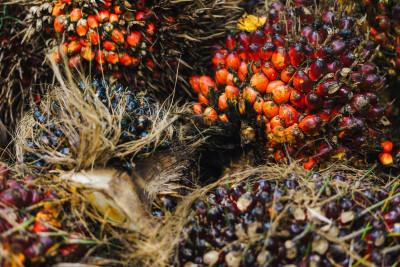
Introduction: Europe’s Rising Sustainability Bar
Palm oil is one of the most hotly debated commodities in Europe. While it is used in food, cosmetics, biofuel, and even animal feed, its association withdeforestation and climate changehas placed it under intense scrutiny. The European Union (EU) is now pushing forward with theEU Deforestation Regulation (EUDR), which will require companies to prove that their imports—including palm oil—are not linked to deforestation or human rights abuses.
For Indonesia, the world’s largest palm oil producer, this is both a challenge and an opportunity. Two certification schemes—theRoundtable on Sustainable Palm Oil (RSPO)and theIndonesian Sustainable Palm Oil (ISPO)—are central to this debate. But can they satisfy Europe’s strict requirements?
Why Europe Matters for Palm Oil
The EU is not the biggest importer of palm oil compared to Asia or Africa, but it is themost influential in setting sustainability standards. What happens in Brussels often shapes global market access.
EU Deforestation Regulation (EUDR): Coming into effect in 2025, it requires full traceability of palm oil back to the plantation level.
Biofuel policies: The EU’s Renewable Energy Directive (RED II) limits palm oil’s use in biodiesel due to indirect land-use change (ILUC) risks.
Consumer activism: European consumers are highly sensitive to sustainability labels, pushing brands and retailers to adopt stricter sourcing policies.
For Indonesian exporters, failure to align with EU standards means losing access to a lucrative and reputation-shaping market.
RSPO: The Global Standard
TheRoundtable on Sustainable Palm Oil (RSPO), established in 2004, is the most recognized global certification for palm oil sustainability.
Strengths
Credibility in Europe: RSPO-certified oil is widely accepted by European buyers.
Comprehensive standards: It covers deforestation-free production, labor rights, and community engagement.
Global membership: Involves producers, traders, NGOs, consumer goods companies, and financial institutions.
Weaknesses
Voluntary nature: Certification uptake is still limited; only about 19% of global palm oil production is RSPO-certified.
Implementation gaps: Smallholders often face barriers due to costs, complexity, and lack of capacity.
Criticism from NGOs: Some argue RSPO audits are inconsistent and enforcement too weak.
While RSPO is viewed as “the gold standard” in Europe, its penetration in Indonesia remains relatively low compared to the total planted area.
ISPO: Indonesia’s National Scheme
Launched in 2011,ISPO (Indonesian Sustainable Palm Oil)was designed to ensure all Indonesian palm oil complies with sustainability principles while being mandatory for producers.
Strengths
Mandatory system: Unlike RSPO, ISPO is legally required, aiming to cover all producers.
Alignment with national laws: ISPO integrates Indonesian regulations on land, environment, and labor.
National sovereignty: ISPO reflects Indonesia’s stance that sustainability should not be dictated solely by foreign entities.
Weaknesses
Credibility in Europe: ISPO is not widely recognized outside Indonesia and is often seen as less rigorous compared to RSPO.
Limited scope: Earlier versions focused more on legality than environmental or social impact.
Smallholder inclusion: Compliance remains low among small farmers who lack resources and support.
Despite revisions in 2020 to improve transparency and governance, ISPO still faces skepticism in European markets.
The EU vs. Indonesia: A Clash of Narratives
The EU’s regulatory push has created friction with Indonesia:
Indonesia’s Argument: European rules are seen as trade barriers disguised as sustainability concerns, potentially hurting millions of smallholders. The government emphasizes ISPO as the legitimate national framework.
Europe’s Argument: Without strong traceability and deforestation-free guarantees, palm oil cannot meet climate goals or consumer expectations. RSPO is seen as a minimum requirement, but even that may not fully satisfy EUDR.
This clash highlights thetension between national sovereignty and global market demands.
Key Trends in Sustainable Palm Oil for the EU Market
1. Traceability Becomes Non-Negotiable
With EUDR, every ton of palm oil entering Europe must be traceable to plantation level. This requires:
Digital platforms and satellite monitoringto prove no deforestation.
Blockchain-based traceability systemsto ensure supply chain transparency.
Collaboration with smallholdersto close gaps in plantation data.
2. Growing Pressure on ISPO to Gain Global Recognition
ISPO needs to undergo deeper reforms to align with international standards. Otherwise, Indonesian palm oil will continue facing credibility issues in Europe.
3. RSPO as a Market Signal, but Not Enough
While RSPO helps, European buyers are moving beyond certification towardjurisdictional and landscape approaches. They want systemic assurance, not just farm-by-farm audits.
4. Smallholder Inclusion at the Core
Without smallholder integration, sustainability efforts will fail. Programs offeringfinancial inclusion, training, and cooperative modelsare essential for both RSPO and ISPO uptake.
5. Blended Financing for Compliance
The transition requires significant investment. Banks, impact investors, and development agencies are stepping in with blended finance, carbon credit schemes, and technical assistance.
What This Means for Indonesia
For Indonesia to remain competitive in the EU market, several actions are urgent:
Strengthen ISPO rigor: Align ISPO with RSPO-level standards and ensure transparency.
Accelerate smallholder certification: Simplify processes and subsidize costs for farmers.
Invest in traceability systems: Scale up digital tools to prove compliance with EUDR.
Engage in diplomacy: Position ISPO as legitimate while negotiating mutual recognition with the EU.
Promote regenerative practices: Move beyond compliance toward practices that restore ecosystems, such as intercropping, agroforestry, and peatland restoration.
Conclusion: Navigating Between Local and Global Standards
The EU is reshaping the palm oil trade landscape with its ambitious sustainability agenda. For Indonesia, the stakes are high: either adapt quickly to meet global expectations or risk being sidelined from a critical market.
RSPO offers international credibility, while ISPO represents national sovereignty. The real challenge is to bridge the gap between the two, ensuring that sustainability is not just a label but a lived practice across millions of hectares and smallholders.
Thetrend is clear: sustainability is no longer optional; it is a passport to global markets. The question is whether Indonesia can harmonize its national vision with Europe’s demands before the window of opportunity closes.



